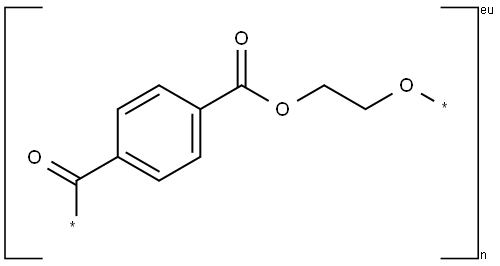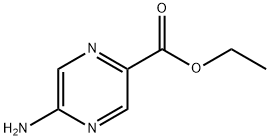In just 100 days, the global chemical industry will converge in Beijing for a spectacular event. The 12th World Congress of Chemical Engineering and the 21st Asia - Pacific Chemical Engineering Federation Congress, along with the concurrent "2025 International Chemical Innovation Exhibition", are set to be a showcase of the latest trends and innovations in the field. But what kind of revolutionary changes can we expect from this grand gathering?
2025 International Chemical Innovation 100 Days Listing: What Breakthroughs Await the Global Chemical Industry?
Related Encyclopedia
Related Products More >
-
- 68890-66-4
- CNY Request For Quotation
-
- 68890-66-4
- CNY Request For Quotation
-
- 124-38-9
- CNY 2500.0000
- 1ton
-
- 67-56-1
- CNY 2400.0000
- 1ton
-
- 9003-07-0
- CNY 10.0000
- 25kg
-
- 107-21-1
- CNY 15.0000
- 25kg
-
- 122-99-6
- CNY 3.0000
- 25kg
-
- 112-27-6
- CNY 10.0000
- 25kg







 沪ICP备2021018848号-5
沪ICP备2021018848号-5

One of the highlights of the exhibition is the introduction of AI-driven chemical robots that promise to revolutionize the way industry professionals interact with technology. These robots, equipped with advanced algorithms, are capable of parsing complex chemical queries and offering bespoke solutions tailored to the needs of the visitors. This innovation is a testament to the chemical industry's embrace of digital transformation, a move that is as much about enhancing customer experience as it is about streamlining operations.
In addition to the AI robots, the exhibition will feature VR, AR, and holographic displays that offer a glimpse into the future of sustainable chemical technologies. These immersive experiences will allow attendees to visualize the potential of green chemistry in sectors such as energy, electronics, and pharmaceuticals. The use of biotechnology in chemical production is also expected to be a major topic of discussion, with exhibitions on the application of genetically engineered enzymes and microorganisms in the synthesis of chemicals.
The exhibition is structured around the theme of "Chemical Engineering Paradigm Shifts in Response to Global Challenges." This theme resonates strongly with the industry's current focus on sustainability and the circular economy. Chemical recycling, a process that converts waste materials into new products, is gaining traction as a viable solution to the escalating environmental concerns. The exhibition will showcase various chemical recycling technologies, including depolymerization, which breaks down plastic polymers into their constituent monomers for reuse.
The event will also feature a "Tri-Summit and Six Activities" system designed to accelerate commercialization and foster business transformations. This initiative is crucial for the chemical industry, as it bridges the gap between research and market deployment. The Tri-Summit includes a New Product and Technology Launch, a Bulk Procurement Selection Conference, and a Supply and Demand Meeting, aiming to match market needs with technological advancements precisely. Meanwhile, the Six Activities are set to enhance industry value by promoting industry knowledge sharing, showcasing student innovations, and awarding industry benchmarks.
The exhibition's impact extends beyond Beijing, as it symbolizes China's growing role as a hub in the global chemical industry. The participation of both domestic and international companies will provide a platform for international cooperation and knowledge exchange, which is vital for the continuous evolution of the chemical industry. The "National Team + Local Cluster + Innovative Enterprises" matrix will showcase the collaborative efforts of state-owned enterprises, regional industrial clusters, and innovative firms.
The bio - chemical aspect also plays a crucial role. Biochemical processes are involved in the production of bio - based chemicals and materials. For instance, the fermentation of sugars by microorganisms is a common biochemical method to produce ethanol, which can be used as a biofuel or as a raw material in the chemical industry. With the increasing emphasis on renewable resources, the exhibition may feature advancements in bio - chemical engineering, such as more efficient fermentation processes or the use of new strains of microorganisms to produce valuable chemicals from biomass.
The utilization of AI in the chemical industry has been a game - changer. The "AI Chemical Robot" to be introduced at the exhibition is a prime example. In chemical research and production, AI can analyze vast amounts of data from experiments. For example, in the development of new drugs, AI can predict the properties of potential drug molecules based on their chemical structures. It can sift through countless possible chemical compounds, saving researchers a significant amount of time and resources. The "AI Chemical Robot" at the exhibition will be able to not only answer complex technical questions but also recommend relevant exhibitors to professional visitors, revolutionizing the way information is exchanged in the industry.
The VR, AR, and holographic projection - enabled immersive exhibition areas will vividly present the future scenarios of chemical technology - enabled sustainable development. In the field of sustainable development, the chemical industry is exploring ways to reduce energy consumption and waste. For example, in the production of steel, which is closely related to the chemical industry, new technologies are being developed to reduce the amount of carbon dioxide emissions during the smelting process. These immersive technologies will allow visitors to visualize how chemical innovations can contribute to a more sustainable future, from the development of new materials for clean energy storage to the improvement of industrial processes to minimize environmental impact.
In terms of trade, the exhibition serves as a crucial platform for global chemical companies to showcase their products and technologies, facilitating international trade and cooperation. With the participation of industry giants like CNPC, Sinopec, and international companies, it reflects the globalization of the chemical industry. However, trade policies and tariffs can also impact the industry. For example, if a country imposes high tariffs on imported chemical products, it may disrupt the global supply chain and increase production costs for companies that rely on imported raw materials. The exhibition may also prompt discussions on how to navigate these trade - related challenges in the chemical industry.
The "Three Meetings and Six Activities" system at the exhibition will further enhance its value. The new product and technology launch conference will introduce cutting - edge global technologies, while the bulk procurement and selection conference will match the needs of billions of dollars, promoting business transformation in the industry. The various activities, such as scientist lectures and the Chem - E - Car competition for college students, will not only spread industry knowledge but also inspire innovation.
As the 2025 International Chemical Innovation Exhibition approaches, it holds great promise for the global chemical industry. It will be a stage for showcasing innovative chemical and biochemical technologies, a platform for exploring the application of AI and immersive technologies, and a venue for promoting international trade and cooperation in the chemical field. But the question remains: How will the innovations and discussions at this exhibition translate into long - term positive changes in the global chemical industry? Only time will tell as we look forward to this grand event.